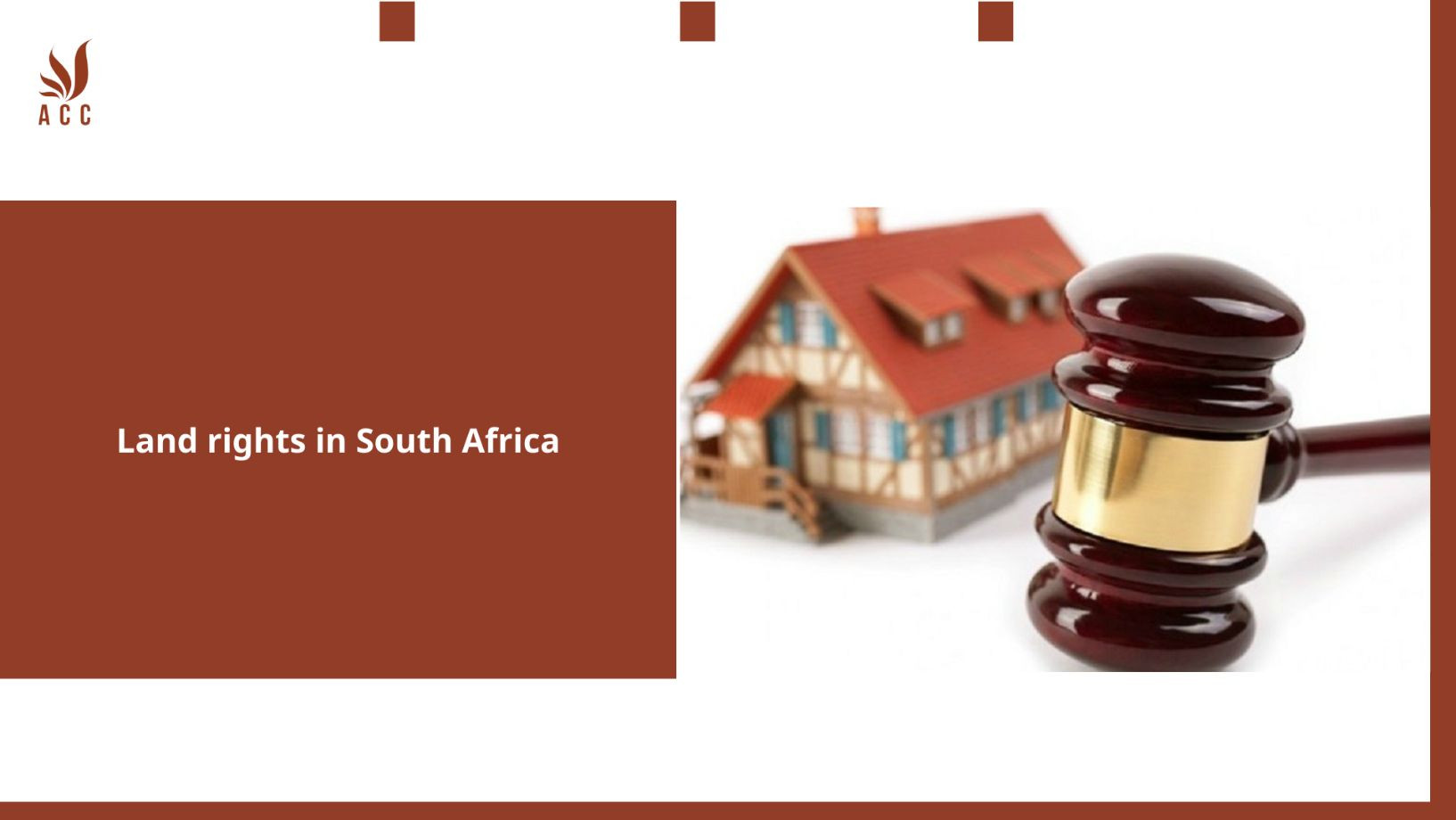Land rights in South Africa have been a significant and complex issue with deep historical and social implications. The country has undergone substantial changes in land ownership and land reform in recent decades to address historical injustices and promote land redistribution. Here are key points regarding land rights in South Africa:

1. Historical Context:
South Africa's history is marked by colonization, apartheid, and land dispossession. The colonial and apartheid regimes marginalized and forcibly removed indigenous people from their ancestral lands, leading to widespread land inequality.
2. The 1913 Land Act:
The Natives Land Act of 1913 is a pivotal piece of legislation that restricted land ownership and use based on racial segregation. It resulted in the forced removal of many black South Africans from their lands.
3. The End of Apartheid:
The end of apartheid in the early 1990s brought significant changes, including a commitment to address land reform and restore land rights to those who had been dispossessed.
4. Constitutional Protections:
South Africa's post-apartheid constitution, adopted in 1996, guarantees the right to property. It also recognizes the need for land reform to address historical injustices.
5. Land Reform Policy:
The South African government has pursued various land reform policies to address land restitution, redistribution, and tenure security. These policies aim to provide land to previously disadvantaged individuals and communities.
6. Restitution:
The Restitution of Land Rights Act of 1994 allows individuals or communities who were forcibly removed from their land after 1913 to claim restitution of their land or compensation.
7. Land Redistribution:
The Land Redistribution for Agricultural Development (LRAD) program and the Proactive Land Acquisition Strategy (PLAS) are examples of government initiatives aimed at redistributing land from commercial farmers to previously disadvantaged individuals or groups.
8. Tenure Security:
The government has also been working to provide greater security of land tenure to people living in communal areas and informal settlements.
9. Challenges and Controversies:
The process of land reform in South Africa has faced challenges, including delays, inadequate funding, and disputes over compensation. There is also debate about the need for constitutional amendments to allow for more comprehensive land reform.
10. Public Debate:
Land reform in South Africa remains a topic of intense public debate, with differing views on the pace and scope of the process. Some advocate for faster and more extensive land redistribution, while others emphasize the importance of protecting property rights.
11. Current Developments:
The South African government has continued to work on land reform and may introduce changes to land-related legislation as part of its commitment to address land inequalities.
Land rights in South Africa are a complex and ongoing issue, reflecting the legacy of apartheid and the country's efforts to achieve social justice, economic transformation, and reconciliation. The process of land reform is central to the broader goals of inclusive development and addressing historical injustices.
12. When using ACC Law Firm's land-related services, entrepreneurs will receive
When using ACC Law Firm's land-related services, entrepreneurs will receive expert advice and assistance in navigating various legal aspects of land ownership and transactions. This includes guidance in property acquisitions, leases, zoning regulations, land use planning, and any other land-related legal matters. ACC Law Firm's team of experienced attorneys will provide personalized support to entrepreneurs, ensuring compliance with applicable laws and regulations, protecting property rights, and optimizing the value of their land investments.
13. Q&A
Q1: What are land rights in South Africa, and why are they significant?
A1: Land rights in South Africa refer to the legal ownership or usage rights of land, particularly in the context of post-apartheid reforms. These rights are significant as they address historical land dispossession, aim to rectify past injustices, and promote land equity among different racial and social groups.
Q2: How have land rights in South Africa evolved over the years, particularly in the post-apartheid era?
A2: Land rights in South Africa have evolved significantly, with the end of apartheid in 1994. Reforms and policies have been introduced to address historical land injustices and promote land redistribution, tenure security, and equitable access to land resources.
Q3: What government agencies or entities oversee land rights and land reform initiatives in South Africa?
A3: The South African government has established various agencies, including the Department of Rural Development and Land Reform, to oversee land rights and land reform initiatives. These agencies work to implement policies related to land redistribution, restitution, and security of land tenure.
Q4: What challenges and opportunities are associated with the implementation of land rights and land reform in South Africa?
A4: Challenges include issues related to land tenure security, efficient land redistribution, and the complexities of addressing historical land injustices. Opportunities lie in promoting inclusive and sustainable land management, rural development, and addressing the economic and social disparities resulting from past land policies.
Nội dung bài viết:






Bình luận